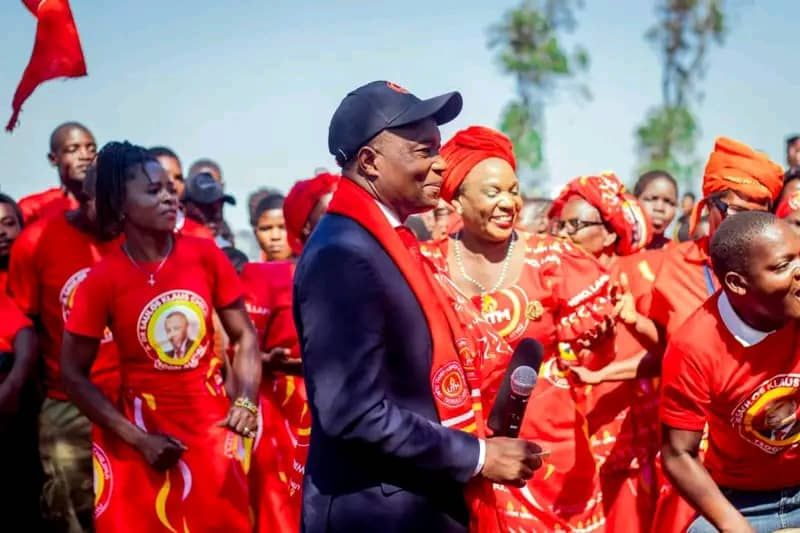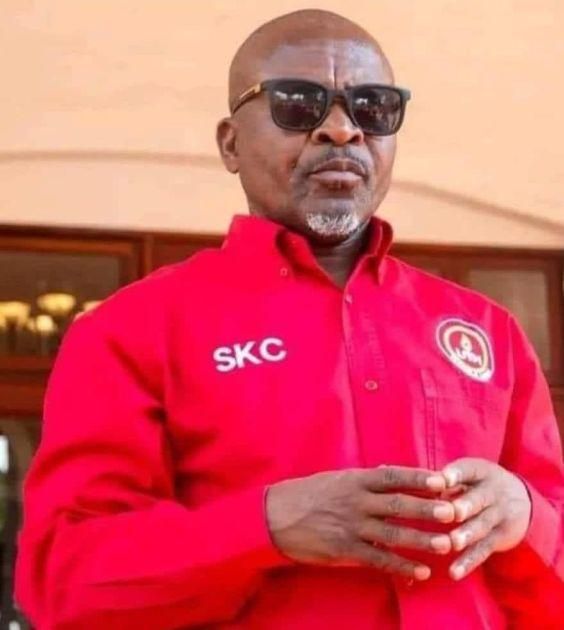By Burnett Munthali
As the UTM convention approaches, the spotlight is on four heavyweight candidates: Dr. Dalitso Kabambe, Dr. Mtumbuka, Patricia Kaliati, and Newton Kambala. Each of them brings unique qualities to the table, making this contest one of the most intriguing in Malawi’s political landscape. The central question remains—who will the delegates choose, and will that choice reflect the future direction of the UTM? This opinion piece explores the strengths and weaknesses of each candidate and attempts to predict who might emerge victorious.

Dr. Dalitso Kabambe: The technocrat who promises economic reform
Dr. Dalitso Kabambe is perhaps the most polished candidate when it comes to economics and policy. With a distinguished career as a former Reserve Bank Governor, Kabambe offers the UTM a chance to rebrand itself as a party focused on economic growth and financial stability. His promises of economic reform are likely to resonate with the middle class, urban voters, and the business community.
However, Kabambe’s lack of political experience could be his Achilles heel. While he has excelled in the technocratic sphere, it is unclear whether he can navigate the rough terrain of grassroots politics. UTM, which has a significant base in the rural areas, may find his appeal limited if delegates prioritize populism over policy expertise.

Dr. Mtumbuka: The intellectual with a vision for change
Dr. Mtumbuka, though perhaps lesser-known on the national stage, presents himself as a fresh intellectual voice in UTM. His academic background and thought leadership in governance reforms give him an edge among those who seek change in the political establishment. Mtumbuka’s candidacy is likely to appeal to the youth and intellectuals within the party who are frustrated by the status quo.
However, Mtumbuka lacks the broad political network and grassroots connections that are crucial in Malawian politics. While he may have the vision for change, his ability to gather support across different regions and classes remains in question. Delegates may find his ideas attractive, but they might question his capacity to deliver victories in a general election.
Dr Patricia Kaliati: The grassroots mobilizer
Patricia Kaliati, a seasoned political figure, comes into the race with a strong grassroots following. Known for her fiery speeches and unwavering commitment to women’s empowerment, Kaliati has established herself as a dominant force within UTM. She has the loyalty of many UTM members and is likely to garner significant support from rural delegates, who appreciate her direct engagement and straightforward leadership style.
However, Kaliati’s political career is not without controversy. Her often confrontational approach could alienate some within the party who seek a more diplomatic and unifying figure. Furthermore, her longstanding political career could be viewed as too entrenched in old-style politics, which may turn off delegates seeking fresh leadership. Nonetheless, her grassroots mobilization skills cannot be overlooked.
Newton Kambala: The businessman with pragmatic solutions
Newton Kambala brings a different flavor to the race—pragmatism rooted in business acumen. As a former Minister of Energy, Kambala is known for his ability to get things done. His focus on economic development and investment aligns with UTM’s progressive vision. For delegates who prioritize economic growth and job creation, Kambala might appear as the ideal candidate.
However, like Kabambe, Kambala’s strength in business does not necessarily translate into political capital. He lacks the charisma and mass appeal that figures like Kaliati have. While he may appeal to the urban elite and business-minded delegates, he could struggle to build a coalition large enough to win the convention.
Who will win?
The race is likely to be a battle between Dr. Dalitso Kabambe and Patricia Kaliati. Kabambe’s economic vision may appeal to delegates who want to present UTM as a party of serious reform, while Kaliati’s grassroots connections make her a formidable opponent. In the end, it may come down to whether the delegates prioritize economic stability or political mobilization.
Dr. Mtumbuka, while intellectually sound, may not have enough political clout to secure a majority. Newton Kambala, although a practical candidate, may not have the charisma needed to lead UTM to victory.
Will delegates choose the right candidate for UTM?
The decision delegates make at this convention will have long-term implications for the future of UTM. If they choose Kabambe, the party could reposition itself as a party of economic reformers, appealing to urban voters and businesses. However, without strong grassroots mobilization, this could backfire in the 2025 general elections. On the other hand, choosing Kaliati may energize the base and rural voters, but it could also limit UTM’s appeal to the middle class and intellectuals who desire change beyond political rhetoric.
Ultimately, the “right” candidate depends on UTM’s goals for the future. If they aim to secure electoral victories through grassroots engagement, Kaliati might be their best bet. But if they want to redefine the party as a forward-looking, policy-driven force, Kabambe could be the right choice. It is now up to the delegates to weigh these factors and choose the path that will lead UTM to success in 2025.



